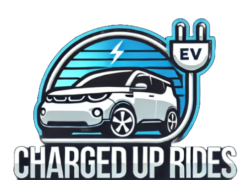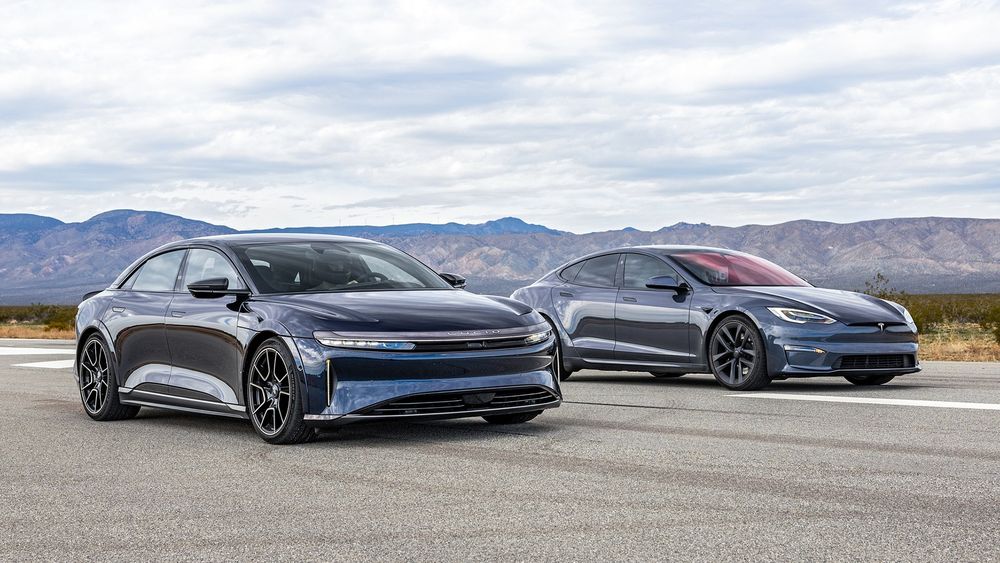Introduction
The electric vehicle (EV) landscape has undergone remarkable changes, transforming from Tesla’s initial industry dominance to a competitive arena with fresh contenders like Rivian and Lucid Motors. Both new entrants bring distinct philosophies and advanced innovations, creating formidable competition for Tesla’s market leadership. This in-depth comparison delves into how Tesla, Rivian, and Lucid measure up in key areas of EV design, performance, and the overall ownership experience, providing valuable insights for prospective EV buyers and enthusiasts alike.
Company Backgrounds and Philosophy
Tesla
Founded in 2003, Tesla’s journey from a Silicon Valley startup to a global EV leader was fueled by its groundbreaking approach to electric vehicles. Tesla emphasizes high performance, with a vertically integrated manufacturing model and a direct-to-consumer sales model that cuts out dealerships. Tesla has set itself apart by developing the Supercharger network, focusing on software-driven functionality, and continuously refining its autonomous driving technology.
Rivian
Established in 2009, Rivian entered the EV market with an adventure-centric vision. The company appeals to outdoor enthusiasts, designing rugged, off-road-ready EVs with strong environmental considerations and sustainable manufacturing practices. Backed by significant investments from companies like Amazon, Rivian leverages a direct-to-consumer model with showrooms, aiming to create an immersive experience with its connected vehicle ecosystem.
Lucid
Lucid Motors, initially founded as Atieva in 2007, approaches the EV market from a luxury-first perspective, targeting buyers seeking top-tier performance, efficiency, and elegance. Led by former Tesla executives, Lucid’s development is bolstered by Saudi Arabian funding, enabling them to offer a premium retail experience. With potential for technology licensing, Lucid combines efficiency-focused engineering with an ultra-luxurious approach, aiming to lead in the high-end EV market.
Vehicle Lineup Comparison
Sedan Options
Tesla Model S
With a price range of $89,990 – $129,990, the Tesla Model S delivers exceptional acceleration (0-60 mph in 1.99-3.1 seconds) and an EPA-rated range of 405-396 miles. Its luxurious, technology-forward interior and industry-leading autopilot system make it a staple in the EV sedan category, offering an established market presence and proven reliability.
Lucid Air
Priced between $77,400 and $179,000, the Lucid Air boasts an impressive range of 406-520 miles and a 0-60 mph acceleration time of 2.5-3.5 seconds. The vehicle’s ultra-luxurious cabin and cutting-edge DreamDrive driver assistance features offer a more opulent option for luxury sedan buyers, emphasizing class-leading efficiency and range.
Tesla Model 3
With a broader mass-market appeal, the Tesla Model 3 has a price range of $40,240 – $53,240. It delivers a respectable range of 272-358 miles, accelerates from 0-60 mph in 3.1-5.8 seconds, and incorporates a minimalist, tech-centric interior. Regular software updates enhance its longevity, making it a popular choice for everyday EV users.
SUV/Crossover Options
Tesla Model X
Tesla’s luxury SUV, the Model X, is priced between $98,490 and $108,490 and offers a 348-333 mile range. Known for its distinctive falcon-wing doors, the Model X seats up to seven passengers and includes features like strong towing capability and an upscale interior.
Rivian R1S
Priced at $72,500 – $92,000, the Rivian R1S is an adventure-ready SUV designed with off-road prowess in mind, offering a range of 316-400+ miles. It features innovative storage options, flexible seating arrangements, and a focus on rugged outdoor utility, making it a unique choice for adventure-oriented drivers.
Tesla Model Y
The Model Y crossover, priced between $47,490 and $54,490, combines excellent efficiency with a 330-mile range, autopilot capabilities, and a versatile design suitable for family use. As one of Tesla’s most popular models, the Model Y offers a blend of performance and practicality.
Pickup Trucks
Rivian R1T
The Rivian R1T is an off-road-focused electric pickup truck priced from $67,500 to $87,000, with an impressive range of 314-400+ miles. Designed for adventure, the R1T incorporates innovative storage solutions and rugged build quality to support an outdoor lifestyle.
Tesla Cybertruck (Announced)
Tesla’s highly anticipated Cybertruck is projected to cost $39,900 – $69,900, with an expected range of 250-500 miles. Known for its unconventional design and claimed “unbreakable” exterior, the Cybertruck promises high towing capacity but has faced production delays.
Performance Metrics
Acceleration and Speed
In terms of straight-line performance, Tesla’s Model S Plaid (1.99 seconds 0-60 mph) outpaces both the Lucid Air Dream (2.5 seconds 0-60 mph) and the Rivian R1T (3.0 seconds 0-60 mph). Each brand, however, emphasizes unique elements, with Tesla focused on raw speed, Lucid on refinement and efficiency, and Rivian on rugged, real-world usability.
Range and Efficiency
Lucid leads with the highest range capabilities, while Tesla’s established efficiency and reliability in diverse conditions are well-documented. Rivian, in contrast, offers a balance of off-road capability and range. Each brand contends with factors like temperature, driving style, and real-world vs. EPA range ratings.
Charging Infrastructure
Tesla’s extensive Supercharger network offers unparalleled reliability and speed, while Rivian’s Adventure Network is expanding to support off-road and remote locations. Lucid relies on third-party networks, but all three provide various home and third-party charging options with reliable speeds and coverage.
Technology and Features
Autonomous Driving
Tesla’s Autopilot and Full-Self Driving capabilities remain industry leaders, while Lucid’s DreamDrive and Rivian’s Driver+ provide viable alternatives with distinct hardware and software features. Future updates and developments are anticipated from each brand as autonomous driving continues to evolve.
Infotainment Systems and Connected Features
Tesla’s screen-centric and minimalist approach contrasts with Lucid’s luxury-integrated technology and Rivian’s utility-focused infotainment. Each brand offers smartphone integration, remote controls, over-the-air updates, and unique entertainment options, contributing to an enhanced user experience.
Interior and Design
Cabin Experience
Tesla’s minimalist aesthetic appeals to tech-savvy drivers, while Lucid provides an ultra-luxury interior with refined materials. Rivian prioritizes utility and comfort, incorporating unique storage and space utilization features suited for an active lifestyle.
Unique Features and Practicality
Tesla’s signature design ethos focuses on simplicity, Lucid emphasizes elegance, and Rivian stands out for practical, adventure-focused innovations. Each vehicle caters to different lifestyles, balancing comfort, visibility, and climate control with varying degrees of storage and cargo options.
Manufacturing and Quality
Production Capabilities
Tesla’s extensive manufacturing facilities are well-established globally, whereas Rivian operates out of a newly developed plant in Normal, Illinois, and Lucid out of Arizona. Each brand faces unique scaling challenges, and as they grow, maintaining quality control and increasing production capacity are key focus areas.
Build Quality
Initial quality ratings show Tesla addressing earlier issues, with Lucid and Rivian taking cues from established players to ensure better fit and finish. Customer feedback will continue to shape the reliability and construction standards across all three brands.
Cost of Ownership
Purchase Price and Operating Costs
Tesla remains competitive with a range of pricing tiers, while Lucid’s luxury positioning demands a premium. Rivian offers a middle ground, with adventure-focused features and financing options. Operating costs, including energy, maintenance, and insurance, differ slightly due to variations in components and brand value retention.
Customer Experience
Sales Process and Service Network
Tesla, Rivian, and Lucid rely heavily on online sales and direct-to-consumer showrooms, with Tesla offering the most streamlined buying experience. Each brand has distinctive delivery and service models, with Tesla’s mobile service and established centers leading in convenience and accessibility.
Future Outlook
Product Roadmap and Market Position
As the EV market rapidly evolves, Tesla continues to expand its model range and Supercharger network, while Rivian’s outdoor focus and Lucid’s luxury appeal create strong growth opportunities in niche markets. With anticipated updates, new models, and international expansion plans, competition among these brands promises ongoing innovation and improvements in the EV industry.
Conclusion
Tesla retains a stronghold on the EV market with its comprehensive product lineup and established infrastructure, while Rivian’s adventure-oriented vehicles and Lucid’s luxury-first approach offer significant alternatives that appeal to distinct buyer segments. The future of EVs will be shaped by these manufacturers as they drive innovation, refine quality, and broaden the accessibility of electric vehicles for a rapidly growing market.

